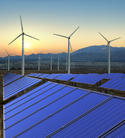Wall Street is disdained in the court of public opinion — detested by the tea party on the right and the Occupy movement on the left. The public blames financial plutocrats for America’s economic plight more than either President Barack Obama or former President George W. Bush. Less than a quarter of all Americans, according to Gallup, have confidence in the banks, which vie for the lowest spot with Big Business and Congress. read more »
Policy
Is Suburbia Doomed? Not So Fast.
This past weekend the New York Times devoted two big op-eds to the decline of the suburb. In one, new urban theorist Chris Leinberger said that Americans were increasingly abandoning “fringe suburbs” for dense, transit-oriented urban areas. read more »
Good Morning, Vietnam
While many experts are pronouncing the demise of the American era and the rise of China, other East Asian nations complicate the picture. As America continues to participate and extend its influence in the dynamic Asian market, there may be no more suitable ally than its old antagonist, Vietnam. read more »
Mass Transit: Could Raising Fares Increase Ridership?
Conventional wisdom dictates that keeping transit fares as low as possible will promote high ridership levels. That isn't entirely incorrect. Holding all else constant, raising fares would have a negative impact on ridership. But allowing the market to set transit fares, when coupled with a number of key reforms could actually increase transit ridership, even if prices increase. In order to implement these reforms, we would need to purge from our minds the idea that public transit is a welfare service that ought to be virtually free in order to accommodate the poor. read more »
Social Market Housing for the USA: Dream or Nightmare?
Imagine a future America where the home ownership rate climbs from the current 65%1 to 87%2. Libertarians as well as many social democrats would be cheering. Imagine that this rate was achieved by the state itself acting as the builder of 88%3 of the housing. Imagine also that the state imposes rules on home purchases to favor first time read more »
Do Standardized Tests Raise Dropout Rates?
The No Child Left Behind Act became law in 2002. Among other things, it required standardized testing of students, beginning in 2003. The scores are used to evaluate the quality of the schools.
It sounds reasonable. Congress certainly thought so. It was co-authored in the Senate by Edward Kennedy (D-MA) and Judd Gregg (R-NH), while John Boehner (R-OH) and George Miller (D-CA) introduced it into the House. It passed both houses by huge bi-partisan majorities, 91-8 in the Senate and 384-45 in the House. read more »
The Secret of Where Good Energy Comes From
In the wake of Solyndra's failure, pundits have latched on to a simple, compelling narrative: government can't do energy right.
From synfuels to solar panels to "clean coal" (written, inevitably, with knowing quotation marks), demonstration projects funded by the Department of Energy are described as one failed white elephant after another. Today the DOE is the agency everyone loves to hate (and, at least in Texas Gov. Rick Perry's case, the agency to forget). read more »
Does a Big Country Need to do Big Things? Yes. Do We Need a Big Government to do them? No.
TV network MSNBC's left-leaning commentator Rachel Maddow has opened herself up to ridicule by the conservative blogsophere over her advert featuring the Hoover Dam. The thrust of the spot is that “we don’t do big things anymore” but that we should. But critics say the dam couldn’t be built today due to environmental opposition to exactly these kinds of projects. Indeed many in the Administration and their green allies are more likely to crusade for the destruction of current dams than for the building of new ones.
Both sides have their points. read more »
Occupy Wall Street: About D@%& Time!
"Privileged people don't march and protest; their world is safe and clean and governed by laws designed to keep them happy. I had never taken to the streets before; why bother? And for the first block or two I felt odd, walking in a mass of people, holding a stick with a placard..." Michael Brock in John Grisham's The Street Lawyer (Doubleday, 1998). read more »
Brand Loyalty Dominates Trip to Work
Many public sector mavens watch like the Dow Jones average the shares of workers using various modes of transportation on work trips to see how their favorite mode is doing. One shouldn’t be surprised when a certain hyperbole creeps into the interpretation of the trends. But in reality not a whole lot is changing, despite many assertions of ballooning growth from some sectors. read more »






















